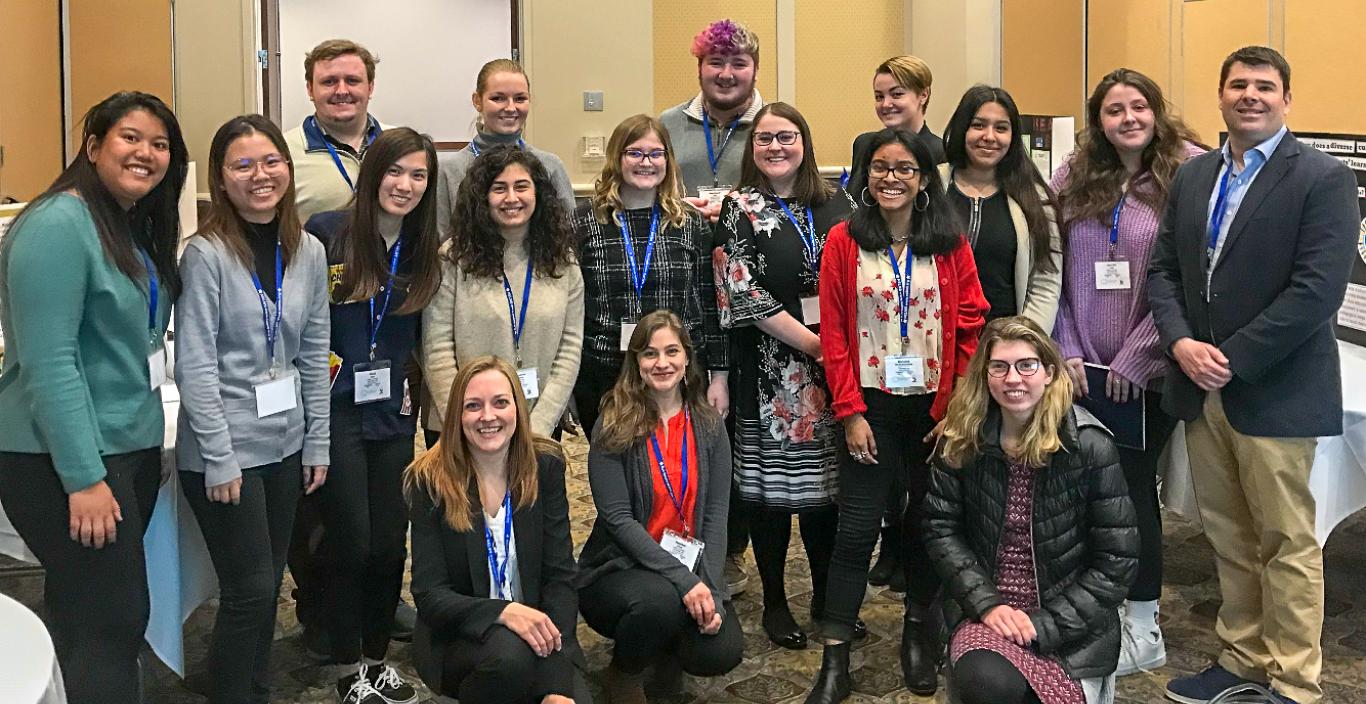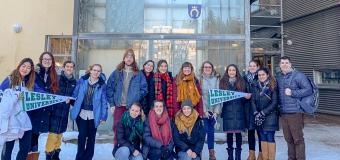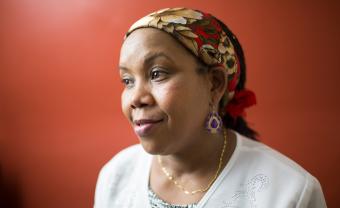Pictured: Sophie O’Brien, Lei Zhang, Benjamin Blask, Zhaopei Xian, Teresa Imbsweiler, Jacqueline Matveeva, Brooke Eisenbach, Bailey Haines, Heather Oliver, Earnhardt Dail, Stephanie Wright, Harper Andrade, Michelle Escoto Barahona, Valeria Sanchez, Julia Angell, Jennifer Flett and Frank Daniello
Lesley undergraduate students recently presented their “genius hour” ideas to area educators at the New England League of Middle Schools’ (NELMS) annual conference in Providence, Rhode Island.
“This was an important event for me because I leapt out of my comfort zone and found that it wasn’t scary. It was just an opportunity to exchange ideas and process a topic I’m passionate about and had spent a lot of time researching on,” said Heather Oliver ’20.
The students were part of “Teaching, Learning, and Social Responsibility,” an education course taught by professors Brooke Eisenbach and Frank Daniello. As part of the class, the professors gave students the freedom to pursue education-related topics that interested them using the genius hour concept. Made popular by companies such as Google, a genius hour gives employees time to pursue a passion project and generate new ideas.
The education students chose topics such as LGBTQIA+ health education, culturally diverse learners, standardized testing, English language learning and homeschooling. Fifteen students in the class presented their research to educators at the conference.
Oliver, a student in the Lesley Center for the Adult Learner program, shared her research on the effectiveness of different learning models for English language learners.
Harper Andrade ’22 and his group presented on the topic “What is missing from health classes?” focusing on mental health, LGBTQIA+ education and sex education.
“Seeing educators care so deeply, particularly about transgender and gender nonconforming students, and how to make them more comfortable in an educational setting, was an incredible experience,” said Andrade.
As a transgendered person who did not feel supported by high school educators, Andrade was heartened to see the positive response from teachers at the conference.
“The connection made with the educators, especially one gender-nonconforming special education teacher was beyond valuable, making the experience unforgettable,” he said.
Eisenbach envisions the course and the conference as a professional stepping stone for students.
“We want our students to see themselves as lifelong learners,” she said. “No better time to start than right now.”


